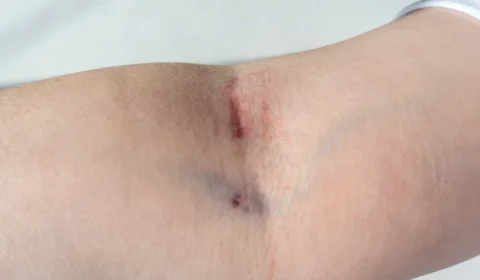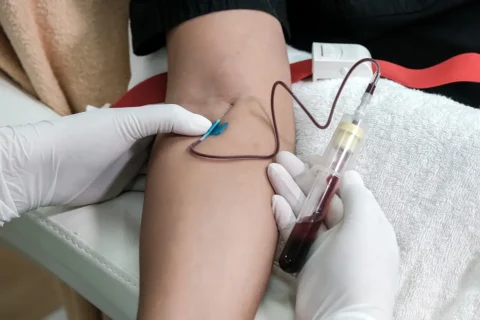The Next Generation of GLP-1 Receptor Agonists
While tirzepatide provides significant benefits in lowering blood sugar levels and boosting weight loss for people with type 2 diabetes and obesity, there are concerns regarding its potential link to certain cancers.
At this time, tirzepatide does not have a direct indication for cancer therapy. Further research is needed to understand the relationship between tirzepatide and cancer risk.
Potential Association with Cancer
Tirzepatide may possibly raise the risk of specific cancers in some patients based on initial evidence:
Animal studies show that tirzepatide promoted thyroid cancer growth in rodents. This suggests a theoretical risk for humans as well, though more work is required.
There are open questions about whether tirzepatide could cause or worsen cancers of the pancreas, breasts, colon, liver ,or thyroid in humans. The exact mechanism by which it may influence cancer has yet to be confirmed.
For now, the data suggesting tirzepatide promotes certain cancers remains preliminary and inconclusive. Further medical research is crucial to verify if a legitimate cancer risk exists for patients taking the drug.
While limited findings point to a possible connection between tirzepatide and some cancers, more definitive evidence is lacking.
Scientists must carry out additional studies to establish whether a genuine risk profile warrants concern among diabetes patients prescribed tirzepatide.
For the time being, healthcare providers should closely monitor patients for potential adverse events that could hint at early cancer symptoms.
Effectiveness in Cancer Treatment
While tirzepatide shows effectiveness in lowering blood sugar and promoting weight loss for diabetes and obesity patients, studies have not clearly established its benefits for cancer treatment or prevention:
Research focuses mainly on tirzepatide’s ability to lower HbA1c levels and reduce fasting blood glucose in diabetics. There are disagreements about whether these effects translate to cancer treatment specifically.
Most studies and trials reviewed primarily highlight tirzepatide’s weight loss and blood sugar lowering effects, which likely have an indirect impact, if any, on cancer treatment outcomes.
Currently, there is no definitive evidence proving that tirzepatide directly helps fight existing cancers or lowers cancer risks. More targeted research on this front is needed.
In short, while tirzepatide shows promise for managing diabetes and obesity, it remains unclear how – or even if – those same capabilities translate into useful cancer therapies.
Scientists must conduct dedicated studies investigating tirzepatide’s potential anti-cancer mechanisms and effects before drug regulators approve it for treating or preventing cancer.
Healthcare providers should wait for more definitive clinical evidence from such trials before prescribing tirzepatide specifically for cancer purposes.
For now, professionals should focus on maximizing known benefits of tirzepatide – like lowering HbA1c and body weight – in patients with type 2 diabetes and obesity, while awaiting further insights into the drug’s effectiveness against cancer.
Healthcare teams must also continue closely monitoring patients taking tirzepatide for signs of possible side effects, including any indication of early stage cancers.
Ongoing Research

While tirzepatide has proven effective at lowering blood sugar and promoting weight loss, uncertainties remain regarding its long-term safety and benefits:
Clinical trials like SURMOUNT-1 are evaluating tirzepatide’s efficacy and side effects in overweight or obese adults without diabetes. Results from these studies may provide more safety assurances for prescribing the drug.
Long-term safety studies of tirzepatide and its use with oral diabetes medications are also underway. These long-term trials will be crucial to identify any rare or delayed side effects.
More targeted trials focused specifically on determining tirzepatide’s potential effects on cancer progression, response to treatment and survival outcomes in cancer patients are needed. Researchers have not yet conducted such dedicated cancer trials.
While existing research has established tirzepatide’s benefits for managing type 2 diabetes and obesity, open questions remain regarding its long-term safety profile and effectiveness in combating cancer.
Ongoing and planned clinical studies aim to fill these knowledge gaps, but more research is warranted to clarify tirzepatide’s true risks, benefits and mechanisms of action that may impact cancer treatment outcomes.
Until scientists can generate more definitive insights through dedicated clinical trials, healthcare providers should exercise caution when considering prescribing tirzepatide off-label for cancer treatment purposes.
Key research priorities should include evaluating tirzepatide’s safety and tolerability over the long term, as well as investigating its potential mechanisms for influencing cancer risks, progression and response to therapy.
Frequently Asked Questions on Tirzepatide Cancer
Can tirzepatide cause medullary thyroid cancer?
Animal studies have shown that tirzepatide may promote the growth of medullary thyroid cancer. However, no human studies have definitively proven that tirzepatide causes medullary thyroid cancer. More research is needed to determine if there is a true risk in humans.
How effective are weight loss drugs like tirzepatide?
Tirzepatide has shown promising results in clinical trials, with some participants experiencing over 15% reduction in body weight. However, more studies are needed to determine its long-term efficacy and safety as a weight loss drug. It is not currently FDA-approved for weight loss.
Can tirzepatide cause weight gain?
No, tirzepatide is designed to help with weight loss, not weight gain. The drug works by reducing appetite and promoting feelings of fullness. In clinical trials, participants taking tirzepatide experienced significant weight loss.
What is the difference between tirzepatide and other GLP-1 receptor agonists for type 2 diabetes treatment?
Tirzepatide is a dual GLP-1 and GIP receptor agonist, while most GLP-1 receptor agonists only activate the GLP-1 receptor. This dual mechanism of action allows tirzepatide to provide greater glycemic control and weight loss compared to selective GLP-1 receptor agonists.
Is tirzepatide safe for patients with a history of acute pancreatitis?
Patients with a history of pancreatitis, both acute and chronic, are typically advised to avoid GLP-1 receptor agonists due to a possible increased risk of pancreatitis. Until more studies have been done specifically in patients with pancreatitis, tirzepatide should also be avoided in this population.
Conclusion
Tirzepatide is currently approved to treat type 2 diabetes and potentially help with weight loss, but is not directly authorized for cancer therapy.
Concerns remain regarding tirzepatide’s potential connection to certain cancers, based on preliminary animal studies. However, more research is needed to determine the true extent of risk for humans.
Current research primarily focuses on tirzepatide’s effectiveness in reducing blood sugar levels and promoting weight loss for diabetes and obesity patients. Its effects on cancer directly have not been definitively established.
Ongoing trials aim to evaluate tirzepatide’s safety profile over the long term and in combination with other drugs. However, dedicated cancer trials are still lacking.
Until scientists conduct targeted studies investigating tirzepatide’s potential anti-cancer effects and mechanisms, healthcare providers should exercise caution when considering prescribing it for off-label cancer treatment purposes.
In summary, while tirzepatide shows promise for managing type 2 diabetes and obesity, uncertainties remain regarding its safety and effectiveness against cancer.
Further research – especially long-term studies and dedicated cancer trials – are critically needed to clarify tirzepatide’s true risks, benefits and mechanisms of action that may influence cancer outcomes.
Healthcare providers should carefully weigh the limited existing evidence before prescribing tirzepatide off-label for cancer treatment outside of well-designed clinical trials.






